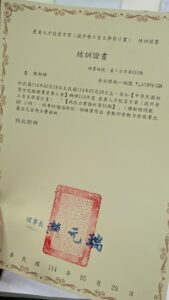The term "tax reserve" means "a sum of money reserved in advance to pay estate taxes."
According to the announcement of the Ministry of Finance, in accordance with Article 12-1, Paragraph 1 of the Estate and Gift Tax Act, the current "tax-free amount" for estate tax is NT$13.33 million.
If you don’t have a professional financial planner to help you adjust your plans and maximize your existing assets, and you find out before the end of your life that your existing assets are less than “NT$13.33 million,” then you don’t need to read any further. After all, people who don’t have much money really don’t need to worry about these things!

In Taiwan, where housing prices are skyrocketing, if you happen to own a property or a large piece of land, plus your existing savings, stocks, investments, insurance, etc., it will basically exceed the tax-free amount.
But if you don’t have offspring, and don’t have the kind of beloved relatives or friends you can’t let go of, and you’ve always lived a carefree, free and easy life, then there’s no need to read on.
It’s not often in the news that, faced with huge tax bills, the next generation of someone chooses to abandon the inheritance.
The main reason for this is definitely that the previous generation did not make good plans to "reserve tax sources" during their lifetime, so that their next generation cannot pay the huge amount of taxes and can only sigh at the huge inheritance.
Under current laws and regulations in Taiwan, one must first pay inheritance tax before inheriting an estate.
That is to say, before you get the large sum of property left to you by your relatives and friends, you need to pay a sum of money out of your own pocket to the country so that you can own that inheritance.
Many people must be wondering: "Why can't I just get the money and then pay taxes?"
According to the Estate and Gift Tax Act, if an estate is to be transferred, renamed, or disposed of, a "tax payment certificate" or tax exemption certificate from the IRS must be obtained first.
The real main reason is to ensure that the national treasury can smoothly obtain the inheritance tax it deserves!
If the heirs are allowed to obtain the estate first and taxes are collected later, it may happen that "property is transferred or consumed", resulting in the state being unable to collect taxes.
Inheritance tax is considered as "the consideration for the acquisition of inheritance", so the law stipulates that ownership is acquired only after it is paid.
Of course, many people say that you can quickly borrow money to pay. If it is just a small amount of money, it is easy to handle; but if you are facing a huge tax amount, how do you think you can borrow money?
The current tax brackets for estates are:
1. 10% below 50 million
2. 50 million to 100 million yuan 15%
Progressive difference 2.5 million
3. More than 101 million yuan 20%
Cumulative difference: 7.5 million
Have you noticed that there is an additional "progressive difference"? What is this money?
In order to implement social wealth fairness, the inheritance tax rate will vary according to the net amount of the estate. The more the net amount of the estate, the more inheritance tax the heirs will have to pay. This is also called the "progressive difference."
In order to avoid putting the next generation in a difficult position because they cannot afford the huge inheritance tax, we have no choice but to give up the inheritance, the money you have worked hard and saved all your life.
Therefore, we need to first "reserve tax sources" and set aside this amount to pay to the country.
In the past, everyone would slowly reduce their assets by making gifts year after year through the annual gift tax exemption of "NT$2.44 million".
If you have a lot of existing funds, starting from billions, how long will it take you to avoid paying inheritance tax?
If you have real estate among your huge assets, how will you make a tax-free gift of "$2.44 million"?
If most of your assets come from investments, then as a qualified investor, I believe everyone knows that "making money out of money" will create more money. Has your "yearly gifts" already dispersed your funds and made you earn less each time you invest?
Simply trying to reduce one's own tax payments is only the first level approach; a better way to deal with it is definitely to directly increase the amount of "reserved tax source". It would be best if the tax to be paid does not have to come out of my own pocket, let alone let the next generation worry about it.
I believe that if you have an excellent financial planning consultant to help you make risk management adjustments to your assets, it will definitely be a more legal and accurate inheritance than relying on hearsay without experience.
After all, those underworld legends who use unconventional methods to evade taxes, if caught, will not only have to pay taxes, but may also be fined.
Life can never be repeated. In order to accurately pass on your existing assets to the next generation, have you reserved tax sources?
This website does not have those annoying ads that block the webpage and hinder reading!
If you think the article I wrote is helpful to you, could you please fill in a Questionnaire, allowing me to better understand everyone’s needs and write more high-quality content.







